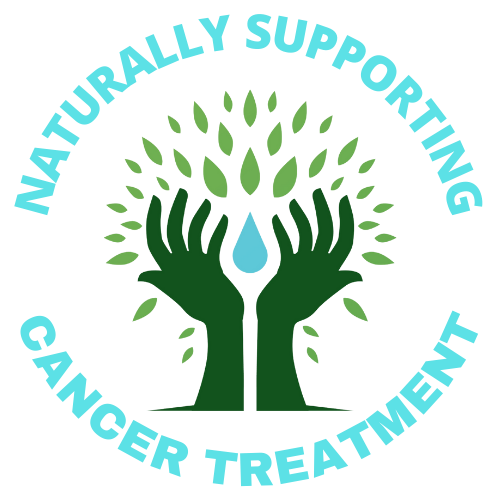Low Platelets After Chemo? Try These Natural Remedies
One of the most severe complications of chemo and sometimes radiotherapy is damage to the bone marrow, known as myelosuppression. The bone marrow is the body’s factory for creating blood cells. Damage to it can cause:
Neutropaenia: low neutrophils, the white blood cells that form the immune system’s first line of defence, leading to infections that can be life threatening.
Anaemia: low red blood cell count, causing fatigue and breathlessness.
Thrombocytopaenia: low platelets, the blood cells that are crucial in blood clotting, resulting in severe bleeding.
There are successful medications to treat neutropaenia and anaemia, and transfusions of red and white blood cells are also used to boost levels in the meantime.
Thrombocytopaenia is more difficult to treat, though. Current medications carry many adverse reactions and so are not approved by the FDA (1). Usually, platelet transfusions are used, but these carry the risk of infections, intolerance to blood components, and sometimes they repeatedly fail to increase platelet levels (1). If this happens, treatment is sometimes paused or the dosage is reduced, both of which affect its effectiveness.
Natural ways to increase platelets
There are a few promising natural ways to increase platelets, although at this stage most of them have only been tested on animals or in vitro. Some of them are already known to be helpful for cancer patients for other purposes.
Selenium
Selenium is an essential trace element. It’s a cofactor for many enzymes in the body and a powerful antioxidant.
In some studies, selenium compounds enhanced the effectiveness of chemo and radiotherapy and reduced the toxicity of those treatments (2).
In a randomised, placebo-controlled trial on 104 Stage IIB cervical cancer patients, 100 micrograms of selenium yeast was added to the chemoradiotherapy treatment of the selenium group twice a day. The results were dramatic: only 48% of the treated group suffered serious damage to the bone marrow. Overall, the damage to platelets was no different between the groups, but in a subset of those with less aggressive cancers, just over 50% had platelet damage in the treatment group compared with nearly 80% in the control group (2).
An earlier animal study also showed an increase in the levels of platelets after chemo and selenium supplementation compared with the control group, whose levels decreased (3).
The usual dosage is 200 micrograms per day. Don’t exceed 800 micrograms daily, as it can be toxic. The best form to take is selenomethionine, which is what is contained in selenium yeast, as used in the studies mentioned.
Selenium can slow blood clotting, so don’t take it if you are on blood-thinning medication. It can also slow the breakdown of barbiturates, which can increase their effects and possible side effects. In theory, it can reduce the effectiveness of immunosuppressants too (4).
Papaya leaf extract (Carica papaya)
Papaya leaf extract via capsule has been tested for use on dengue patients who often suffer from low platelets. Their platelet counts improved and they didn’t need as many platelet transfusions. It has also been used in animal trials, where both platelets and red blood cells were improved. (5).
In a case study of a man suffering from glioblastoma, a type of brain cancer, he was receiving radiotherapy that had to be stopped because of low platelets. His insurance company wouldn’t cover the cost of medication for thrombocytopaenia, so his care team decided to try papaya leaf extract. He was given a dose of 1 tablespoon of liquid extract twice a day for about 2 months, which brought his platelet levels up to a safe level with no adverse effects (5).
Astragalus
Astragalus is a herb commonly used in Traditional Chinese Medicine (TCM) that has become more widely used in Western Herbal Medicine in recent times.
Its main use is as an adaptogen, so it supports the body when it’s stressed, either mentally or physically. But there is also research showing that it is effective at:
Increasing apoptosis (programmed cell death)
Boosting B and T cells, so it improves immunity
Protecting the heart, liver and kidneys
Reducing nausea and vomiting during cancer treatment (6).
So it’s a valuable herb for cancer patients, aside from its ability to protect against myelosuppression.
In a randomised controlled trial (RCT), pancreatic cancer patients received 250 mg a day of astragalus in addition to their chemo. The incidence of low platelets and low white blood cells was half in the group that had astragalus compared with the control group and their survival was significantly better too (7).
An animal trial demonstrated that it can help platelet and red blood cell recovery after radiotherapy too (8).
Astragalus is usually sold in tablet form and the recommended dosage is 2.5 – 3.4 g per day.
It is considered to be a safe herb, although in TCM it is considered unwise to use it during an acute infection.
Laboratory tests show that it has some oestrogenic effects, so it isn’t recommended for hormone-sensitive cancers.
There are no definitive interactions with other drugs, but in theory it could interfere with anti-diabetes drugs and lithium. The interaction with cyclophosphamide is conflicted, with some researchers suggesting it reduces immunosuppression and others finding it doesn’t. Because it improves immunity, it isn’t recommended during immunotherapy (9).
Korean ginseng (Panax ginseng)
Korean ginseng is another TCM herb that has been adopted by Western herbalists. It is also an adaptogen. It’s widely used in China for cancer patients.
It has a wealth of other uses, including:
Protecting damage to bone marrow.
Helping protect against some cancers and improving their survival rates, by inhibiting their growth, inducing apoptosis, helping to prevent angiogenesis and therefore metastasis, and increasing chemo and radiation sensitivity.
Increasing T cells and Natural Killer (NK) cells.
Reducing nausea and vomiting during chemo and radiation.
Improving mental wellbeing.
Improving libido in men.
Lowering LDL cholesterol and increasing HDL cholesterol.
A meta-analysis of 28 RCTs covering 2503, lung cancer patients given Korean ginseng had significantly less incidence of thrombocytopaenia and neutropaenia, better quality of life, less liver damage, and less nausea and vomiting (10).
An earlier meta-analysis covered a range of cancers and also found a lower incidence of thrombocytopaenia (11).
The usual dosage is 300 – 500 mg per day, but doses of 1 – 3 grams per day have been used for cancer patients to fight fatigue without ill effects. It is best taken in the morning because it can be too stimulating at night. For the same reason, it’s best not taken with coffee.
Korean ginseng can interfere with the action of many drugs, including chemo drugs and warfarin. Always consult a trained healthcare practitioner before using it with anything.
It stimulates many hormonal pathways, so avoid using it if you have a hormone-sensitive cancer.
Reishi mushrooms (Ganoderma lucidum)
Medicinal mushrooms have been used by TCM practitioners for over 2,000 years to protect against and treat cancers, as well as a wide range of other conditions. Reishi is one of them. Of particular interest to anyone who has or has had cancer, it can help with:
Immune system support
Fatigue
Insomnia
Preventing cancers returning
Mood support (6).
In an animal study, healthy animals were treated with reishi extract. The results showed that it increased the levels of platelets, haemoglobin and white blood cells significantly (12).
The recommended dosage in humans depends on the form you take it in:
Dried mushrooms: 1.5 – 9 g/day
Powder: 1 – 1.5 g/day
Tincture: 1 ml/day
If you take antidiabetic drugs or medication for high blood pressure, monitor your levels carefully whilst using reishi, as it can interact with them to increase their effects.
Quercetin
Quercetin is a flavonoid that is found in foods including red wine, tea, apples, berries, and onions, as well as in some herbs. As a flavonoid, it has antioxidant, anti-inflammatory and anti-cancer properties.
For cancer patients, it can be helpful in killing cancer cells whilst not damaging normal cells, reducing the side effects of chemo drugs without affecting their performance, and a clinical study showed that it can prevent chemo-related mucositis (13).
In an animal study, quercetin significantly increased the levels of platelets and both red and white blood cells after they had been treated with cisplatin, a chemo drug. Higher and intermediate doses were more effective than low ones (13).
A number of different herbs identified as having high levels of quercetin, including payaya leaf extract (as mentioned above), also show significant promise in treating immune-related thrombocytopaenia (14).
Usual dosages vary between 500 mg and 1 g per day. It has been safely used at dosages of 500 mg twice daily for up to 12 weeks (15), which should be enough to see a difference in platelet levels.
Conclusion
There are a number of possible treatments for low platelets after treatment. People’s bodies react differently, so if one doesn’t appear to work, try another.
I also have some other possible solutions for low platelets, along with some suggestions for preventing the problem before it starts, in my book. You can find all the online sites to buy it in your area by clicking the button below.
One word of caution: if you have had a blood cancer, talk to your haematologist before using any of these remedies. Blood cancers originate in the bone marrow, so any treatment that stimulates the bone marrow could cause any residual cancer cells to proliferate. Your haematologist can advise if it is safe to use any of these treatments and can monitor you to ensure your safety.
References
Chawansuntati K, Hongjaisee S, Sirita K, et al. Effects of quercetin and extracts from Phyllanthus emblica, morus alba, and ginkgo biloba on platelet recovery in a rat model of chemotherapy-induced thrombocytopenia. Heliyon. 2024;10(2). doi:10.1016/j.heliyon.2024.e25013
Yang M, Pei B, Hu Q, et al. Effects of selenium supplementation on concurrent chemoradiotherapy in patients with cervical cancer: A randomized, double-blind, placebo-parallel controlled phase II clinical trial. Frontiers in Nutrition. 2023;10. doi:10.3389/fnut.2023.1094081
Cengiz M, Ayhancı A, Heybeli N, Kulcanay Sahin İ. Myelosuppression and oxidative stress induced by cyclophosphamide in rats: The protective role of selenium. Adıyaman University Journal of Science. 2019;9(2):252-265. doi:10.37094/adyujsci.617016
Natural Medicines Database. Selenomethionine by Lorna Vanderhaeghe. NatMed Pro. 2025. Accessed June 6, 2025. https://naturalmedicines.therapeuticresearch.com/databases/commercial-products/commercial-product.aspx?cpid=135042.
Koehler A, Rao R, Rothman Y, et al. A case study using papaya leaf extract to reverse chemotherapy-induced thrombocytopenia in a GBM patient. Integrative Cancer Therapies. 2022;21. doi:10.1177/153473542110684171.
Graves J. Chapter 8. In: Naturally Supporting Cancer Treatment: Evidence-Based Ways to Help Prevent Cancer Formation and Recurrence, and Assist Treatment. Kamberry Press; 2021:279-282.
Li G-Y, Jiang J. Recent efficacy and long-term survival of astragalus polysaccharide combined with gemcitabine and S-1 in pancreatic cancer. World Journal of Clinical Oncology. 2024;15(11):1404-1411. doi:10.5306/wjco.v15.i11.1404
Mo Y, Xu W, Lin S, Chongs BH, Li C. Effect of astragalus polysaccharide on Hematopoiesis and Thrombopoiesis In Vivo and In Vitro. Blood. 2017;130(Supplement 1):4947. doi:10.1182/blood.V130.Suppl_1.4947.4947
Natural Medicines Database. Astragalus. National Medicines Database. 2025. Accessed June 9, 2025. https://naturalmedicines.therapeuticresearch.com/databases/food,-herbs-supplements/professional.aspx?productid=963#interactionsWithDrugs
Zhu H, Liu H, Zhu J-H, et al. Efficacy of ginseng and its ingredients as adjuvants to chemotherapy in non-small cell lung cancer. Food & Function. 2021;12(5):2225-2241. doi:10.1039/d0fo03341c
Pan L, Zhang T, Cao H, Sun H, Liu G. Ginsenoside RG3 for chemotherapy-induced myelosuppression: A meta-analysis and systematic review. Frontiers in Pharmacology. 2020;11. doi:10.3389/fphar.2020.00649
Ahmed H, Aslam M. Effect of Ganoderma lucidum (Reishi) on Hematological Parameters in Wistar Rats. International Journal of Medical Research & Health Sciences. 2018;7(3):151-157.
Chuang C-H, Lin Y-C, Yang J, Chan S-T, Yeh S-L. Quercetin supplementation attenuates cisplatin induced myelosuppression in mice through regulation of hematopoietic growth factors and hematopoietic inhibitory factors. The Journal of Nutritional Biochemistry. 2022;110:109149. doi:10.1016/j.jnutbio.2022.109149
Wiggins RW, Woo J, Cauba JN, Mito S. Evaluating the potential of herbal extracts as treatment in immune thrombocytopenia: A review of evidence and limitations. Applied Biosciences. 2025;4(1):1. doi:10.3390/applbiosci4010001
Key AP, Stuart A. Quercetin: Uses, health benefits, dosage and side effects. WebMD. June 11, 2024. Accessed June 10, 2025. https://www.webmd.com/vitamins-and-supplements/quercetin-uses-and-risks.

